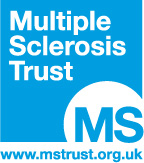Diet and Multiple Sclerosis
Whether it is possible to influence MS through diet remains a controversial topic. Although no specific diet has yet been proven to be beneficial for people with MS, we are inundated with information from books, magazines and online, much of which is contradictory.
Opinions range from denying any evidence of benefit to suggesting that MS can effectively be cured by specific diets.
The situation is probably best summed up by Professor Allen Bowling, neurologist of the Rocky Mountain MS Centre, Colorado who said:
The whole area of diet has been a loose thread in MS studies — the evidence is tantalizing but not definitive.
Diet is notoriously difficult to research, for a number of reasons:
- it is usually impossible for researchers to control exactly what a person eats over a period of time.
- it is often very difficult to contrast an 'active' element with a placebo.
- what a person eats is known and obvious so there cannot be any 'blinding', as there would be in a drug trial.
- most research is expensive and costs need to be recouped. Many foods are cheap, so there is little financial incentive in proving them beneficial.
Whilst research into diet and MS has been limited, there has been research into a healthy diet for other conditions.
Awareness of diet offers the opportunity to promote general health and well being, which may be even more important following a diagnosis of MS.
As MS is often unpredictable, focusing on aspects of health you can control can be really important.
Good diet is particularly important in MS as poor nutrition can worsen existing symptoms such as fatigue and weakness.
Fatigue is one of the commonest symptoms of MS and can impact on all aspects of life.
Being fatigued can mean that it is harder to prepare meals and so may encourage you to eat less healthy pre-prepared or take away meals. It can be useful to think of ways to minimize the effect of fatigue on diet.
- Organise the kitchen to keep commonly used items close to hand.
- Cook at times of day when energy levels are higher.
- Cook in bulk when you feel less fatigued and freeze for use at a later date.
- Sit rather than stand to prepare and cook meals.
- Get all the ingredients and utensils together before starting to cook.
- Make use of equipment or labour saving devices where possible, such as electric mixers, can openers and knives.
Dietary strategies in MS
Dietary strategies that have been studied in MS tend to relate to different kinds of dietary fats. Based on the limited findings it has been suggested that the following might be considered:
- Increase intake of foods that are rich in fatty acids (n-3 and n-6), such as oily fish (especially salmon, herring, mackerel, sardine and cod) and oils from certain seeds and nuts (primarily flaxseed and walnut).
- If you increase the relative amounts of n-3 and n-6 fatty acid in your diet, then it is important to supplement with modest amounts of vitamin E (100 IU daily. Vitamin E is found in soya, corn and olive oil, nuts and seeds, and wheatgerm.
- Decrease intake of saturated fat.
- There has been recent interest in the role of vitamin D in MS and the Food Standards Agency (FSA) suggests that taking 25 micrograms (0.025 mg) or less of vitamin D supplements is unlikely to cause harm. In December 2010, a number of health organisations issued a consensus statement that suggested regularly going outside for a few minutes around the middle of the day without sunscreen to increase vitamin D levels.
- Avoid supplements that boost the immune system.
Some diets have been designed specifically for MS but these tend to be diets which exclude certain food groups such as dairy or gluten so there are some points you might like to consider before embarking on these.
- have you been given balanced or evidence-based information about the diet, or does it only seem to be promoted by enthusiasts?
- will the diet be worse than the symptoms that it might alleviate - for example, will it stop you eating all the foods you enjoy, or make going out for meals/meals with family or friends difficult?
- does it make realistic claims for improvements in MS?
- will your diet still be balanced?
- how affordable is it?
- will cooking/preparing it be a problem?
- is it recommended by your GP/dietician?
Dietary supplements

However, as cells of the immune system can cause damage in MS, it makes sense to avoid immune-stimulating supplements, such as ginseng and echinacea, especially in high doses or for extended periods of time.
Other risks, including potential toxicities, drug interactions, and interactions with other underlying health problems mean it is always a good idea to discuss all supplements with your health professionals.
One cannot think well, love well, sleep well, if one hasn't eaten well.
Virginia Woolf (A room of one’s own).For other questions about diet or any other aspect of MS
Contact the MS Trust information team info@mstrust.org.uk
Free Phone 0800 32 3839
www.mstrust.org.uk
www.msawarenessweek.org.uk